Facebook
Twitter
LinkedIn
Pinterest
Reddit
Email
Print
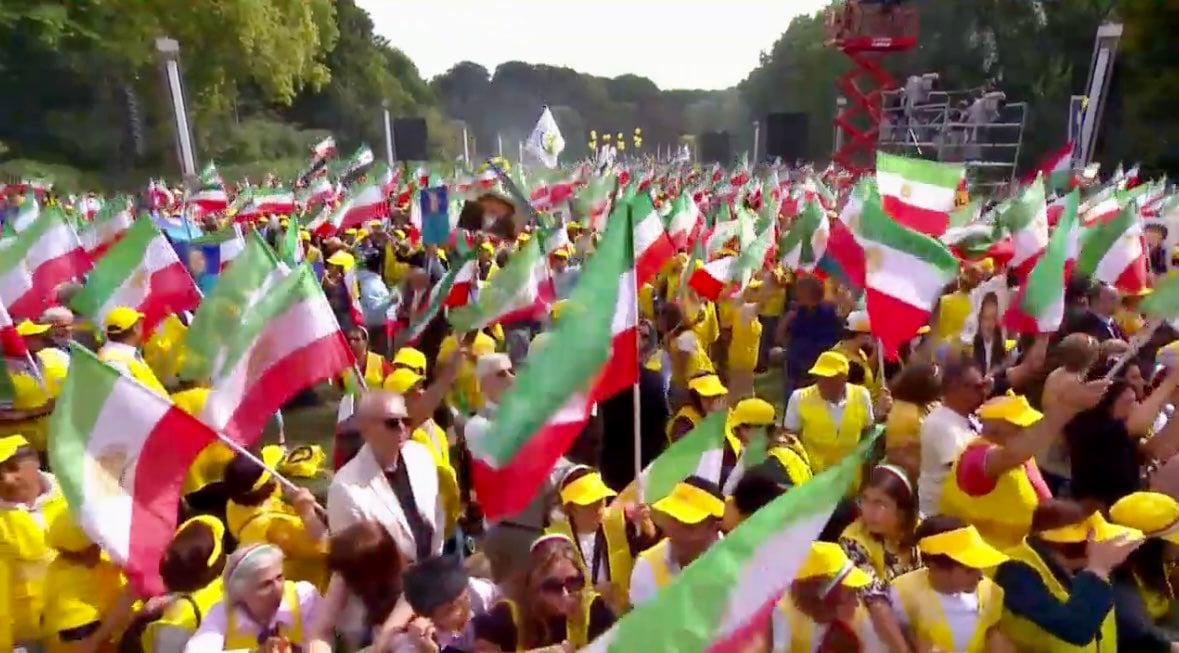 Brussels rally marks 60th anniversary of PMOI, calls for regime change in Iran
Brussels rally marks 60th anniversary of PMOI, calls for regime change in Iran
THIS PAGE WILL BE UPDATED WITH THE LATEST NEWS
UPDATE: 8:00 AM CEST
Appeasing Tehran has failed. It’s time to back the Iranian people’s ‘Third Option’
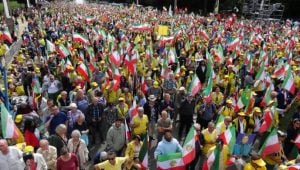
The massive rally of the Iranian Resistance in Brussels on September 6, 2025, was more than just a gathering; it was a powerful and public verdict on decades of failed Western policy toward Iran. For too long, the international community has pursued a strategy of appeasement, hoping to moderate a regime that is fundamentally incapable of reform. This policy has not only failed to bring about change but has actively emboldened the theocracy in Tehran, making it a greater threat to its own people, the region, and the world.
World Suicide Prevention Day: Annual 10% Increase in Deaths from Suicide in Iran

On World Suicide Prevention Day, it is an opportunity to address one of the hidden and overlooked crises in Iranian society: the suicide of women and girls. According to Hamid Yaghoubi, head of the Suicide Prevention Association, in the past four years, deaths from suicide in Iran have increased by 10% annually. In 2011, the rate was 7.4; it rose to 8.1 in 2022 and reached 8.9 in 2023. Emphasizing that the rate is even higher in 2024, he said it will likely reach 9.7 in 2024. Hamid Yaghoubi admitted that Iran told the world its suicide rate was 4.3%, which placed the country at rank 160 among 160 countries.
NCRI-US Celebrates 60th Anniversary of PMOI in Washington, D.C., Highlighting Iran’s Struggle for Freedom
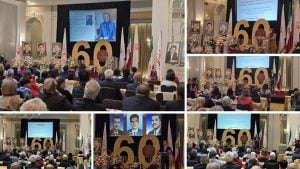
On September 7, 2025, the National Council of Resistance of Iran (NCRI) office in Washington, D.C., hosted a momentous event at the Mayflower Hotel to commemorate the 60th anniversary of the founding of the People’s Mojahedin Organization of Iran (PMOI/MEK). The celebration brought together Iranian-Americans, members of the Organization of Iranian-American Communities (OIAC), supporters of the Iranian resistance, and distinguished political figures. The event highlighted the MEK’s enduring legacy of resistance against oppression, featuring a blend of artistic performances and compelling speeches that underscored the organization’s six decades of struggle for freedom, justice, and sovereignty for the Iranian people.
Continued detention and torture of Mohammad Banazadeh Amirkhizi
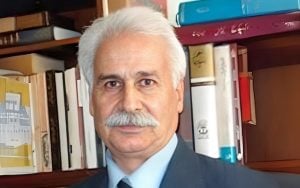
Mohammad Banazadeh Amirkhizi, a 79-year-old political prisoner and a survivor from the justice-seeking families of the 1980s, is still being held under very difficult conditions in the Qom Ministry of Intelligence detention center. Despite multiple illnesses and a critical physical condition, he not only has no access to medical care, but is also kept in solitary confinement under interrogation and severe psychological pressure. On the morning of Monday, July 28, security forces entered the home of Mohammad Banazadeh Amirkhizi in Tehran without presenting a judicial warrant and forcibly took him away. After his transfer to the Ministry of Intelligence detention center in Qom, his family was left in complete uncertainty and has only been able to have a few short phone calls with him under the control of security agents.
Reserves of Five Main Dams in Iran Have Dropped to Zero
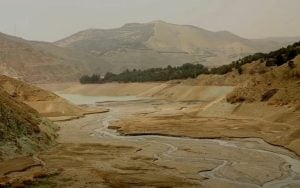
The latest data from Iran’s Water Resources Management Company shows that between September 22, 2024, and September 6, 2025, the reserves of five major dams in Iran have fallen to zero. With the worsening water crisis and the regime’s inability to manage resources, new official reports indicate that 19 large dams in the country are facing severe drought. Voshmgir, Golestan, and Boostan dams in Golestan province, Rudbal Darab dam in Fars, and Shamil and Niyan dams in Hormozgan have completely dried up. In Gilan, the Sefidrud dam holds only 3% of its capacity, while in Zanjan, the Taham dam has reached a warning level with just 9% of reserves.
Expanding Protests in Iran Highlight Deepening Political and Economic Crisis
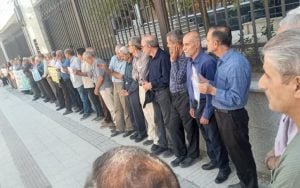
With 313 protests recorded in August 2025, workers, retirees, students, farmers, and other social groups escalate demonstrations amid worsening economic stagnation and systemic failures. As Iran’s regime faces widening fractures and systemic failure, public protests across the country have surged. More than a year into the presidency of Masoud Pezeshkian, it is increasingly evident that the regime has no solution to the country’s worsening crises. The recent 12-day war delivered heavy blows to the regime’s already fragile economy, deepening stagnation and triggering new rounds of demonstrations. In August 2025 alone, at least 313 protest movements were recorded in cities across the country, reflecting broad-based unrest and the regime’s preparation for what appears to be an inevitable final confrontation with its people.
Iran’s Electricity Crisis: Regime Turns to Solar Panels Amid Structural Failures
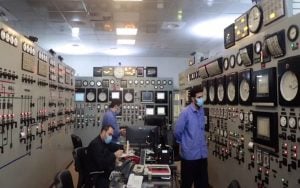
As power outages worsen, Tehran promotes solar projects as a quick fix—despite technical, financial, and environmental barriers that make real solutions unlikely. Iran is experiencing an intensifying electricity crisis, with rolling blackouts hitting many cities several times a day. Instead of addressing systemic issues in the energy sector, the regime has turned solar energy into a central propaganda theme—portraying it as a short-term solution to the country’s growing power deficit. During his September 7 visit to China, regime president Masoud Pezeshkian instructed his scientific deputy to prioritize building solar power plants in urban areas. His comments echoed previous claims from government officials that solar development could ease the electricity shortage in just a few months. Energy experts, however, dismiss these assurances as unrealistic. They argue that while solar power fits Iran’s climate potential, it cannot meet the country’s immediate and massive demand.
Also, read Iran News in Brief – September 9, 2025